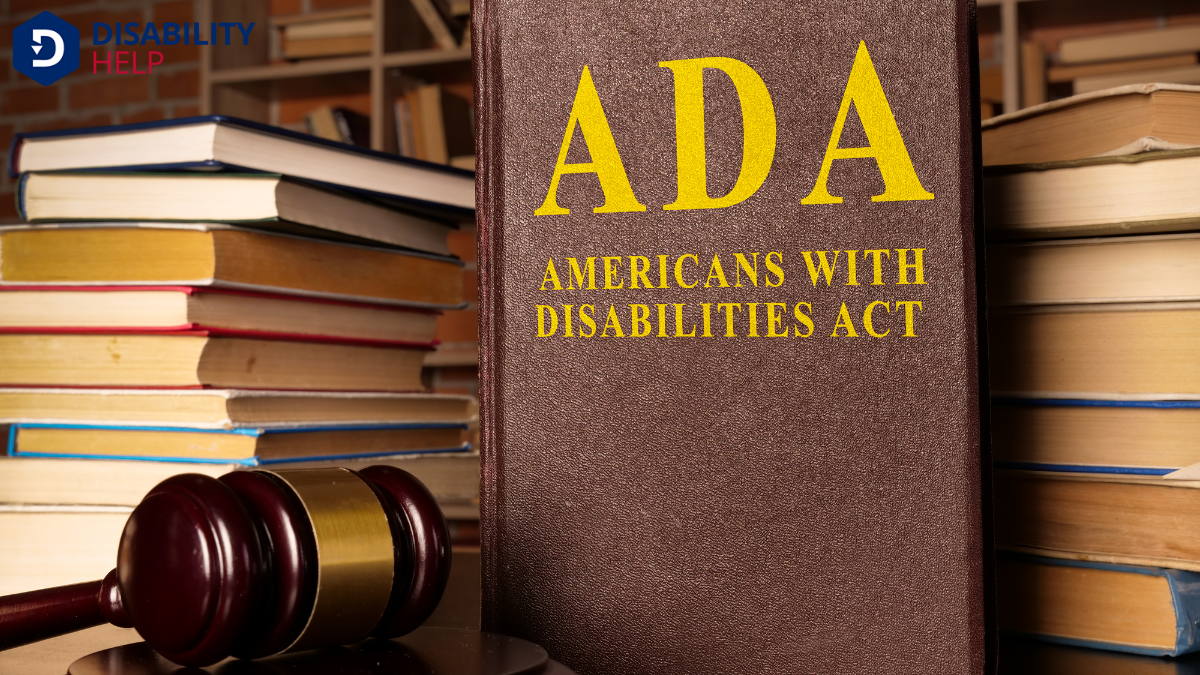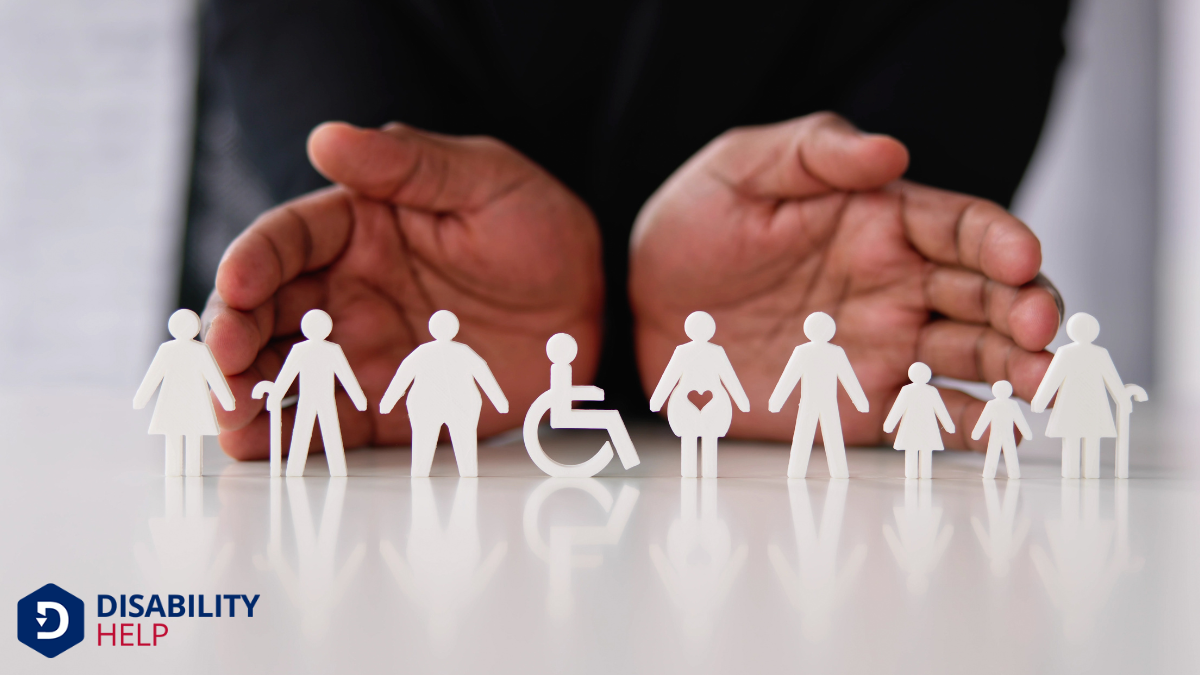When we travel, accessibilityThe design of products, devices, services, or environments to be usable by people with disabilities.... is essential for all guests, especially those with disabilities. Hotels are indeed required to accommodate these guests under the Americans with Disabilities Act (ADA)A U.S. law that prohibits discrimination against individuals with disabilities in all areas of publi.... But what does this mean for both travelers and hotel operators? Let's explore the legal obligations, common challenges, and best practices that guarantee everyone can enjoy a seamless hotel experience.
Key Takeaways
- Hotels are legally required to ensure accessibility for guests with disabilities under the Americans with Disabilities Act (ADA).
- Physical spaces such as entrances and restrooms must be accessible to guests with disabilities.
- Hotels must allow service animals in all areas accessible to guests.
- Auxiliary aids, like visual alarms, are necessary for guests with hearing impairments.
- Communication about accessibility features should be clear during the reservation process.
Understanding the Legal Framework for Accessibility in Hotels
How exactly do hotels guarantee they’re accessible to everyone, including those with disabilities? We navigate a complex legal framework that secures hotels accommodate all guests fairly. Laws and guidelines require us to create spaces where individuals with disabilities feel welcome and comfortable. This involves making both physical and service-related adaptations.
We focus on guaranteeing accessible entrances, rooms, and amenities. This includes features like ramps, elevators, and designated parking spaces.
Additionally, we provide accessible communication methods for booking and services. Understanding these legal obligations helps us take proactive steps to meet diverse needs.
Key Provisions of the Americans With Disabilities Act (ADA)

Building on our understanding of the legal framework, let's explore the key provisions of the Americans With Disabilities Act (ADA) that guide our efforts.
The ADA mandates that hotels must provide equal accessThe principle that all individuals, including those with disabilities, should have equal opportunity... and accommodationsModifications or adjustments in healthcare settings to support patients with disabilities. for guests with disabilities. This includes guaranteeing that physical spaces, like entrances and restrooms, are accessible.
We must also offer auxiliary aids, such as visual alarms for guests with hearing impairments.
Service animals are another critical consideration. We're required to allow them in all areas where guests are typically permitted.
Additionally, when making reservations, we must communicate about accessibility features clearly and accurately.
These provisions guarantee that guests with disabilities can enjoy their stay with dignity and independence, aligning our services with ADA standards.
Common Challenges Faced by Travelers With Disabilities
Let's explore the common challenges travelers with disabilities face during their hotel stays.
We often encounter accessibility barriers, like narrow doorways and lack of ramps, while communication and information gaps can make it hard to get the support we need.
Additionally, limited mobility solutions restrict our ability to move freely and enjoy our accommodations fully.
Accessibility Barriers Encountered
While many hotels endeavor to accommodate guests with disabilities, significant accessibility barriers remain. We often encounter challenges like insufficiently wide doorways, making it difficult for wheelchair users to navigate.
Bathrooms may lack grab barsBars installed in bathrooms or other areas to provide support and prevent falls for those with mobil... or roll-in showers, vital for those with mobility needs. Elevators might be too narrow or absent in older buildings, limiting access to upper floors.
Additionally, visual and auditory aids can be inadequate. For instance, poor lighting, lack of braille signage, or malfunctioning visual alarms can hinder guests with visual or hearing impairments.
Even when rooms are labeled accessible, they may fall short in truly meeting our needs. It's essential that hotels prioritize all-encompassing accessibility solutions to guarantee all guests feel welcome and comfortable during their stay.
Communication and Information Gaps
Beyond physical barriers, communication and information gaps pose significant challenges for travelers with disabilities. When we plan our trips, we rely on clear, accessible information to make informed choices. However, many hotels don’t provide essential details about their facilities online or in brochures, leaving us frustrated and uncertain.
For those of us with hearing or visual impairments, inadequate communication tools like the absence of Braille materials or sign language interpreters can make maneuvering hotel services intimidating.
Even booking a room becomes stressful when websites aren’t screen-reader friendly or when customer service lacks training in addressing our needs.
We deserve transparency and accessibility in communication. By ensuring that information is inclusive and accessible, hotels can create a more welcoming environment for all travelers.
Limited Mobility Solutions
Maneuvering a hotel environment can be intimidating for those of us with limited mobility, as many establishments still lack adequate solutions.
While some hotels make genuine efforts, we often face challenges that hinder our comfort and convenience.
Traversing narrow hallways, reaching high counters, and dealing with inadequate bathroom facilities can turn a relaxing stay into a stressful experience.
To foster inclusivity, hotels should prioritize:
- Wider doorways and hallways to accommodate wheelchairs and mobility aidsDevices designed to help individuals move around more easily, such as canes, walkers, or wheelchairs....
- Accessible bathrooms with grab bars, roll-in showers, and lowered sinks.
- Lowered check-in counters for easier interaction at reception.
- Elevator access with braille buttons and audio announcements.
The Role of Hotel Staff in Providing Accessible Services
Understanding the critical role hotel staff play in providing accessible services is essential for creating an inclusive environment. We must recognize that staff are the bridge between guests and the accommodations we offer. Their awareness, training, and empathyThe ability to understand and share the feelings of another, particularly important in understanding... greatly impact the experience of guests with disabilities. By being attentive and proactive, staff can anticipate needs, ensuring comfort and satisfaction.
We can empower our team through thorough training that covers disability awareness and communication skills. This training helps staff respond effectively to requests, such as offering assistance with mobility devices or providing clear directions.
Let’s remember, our staff’s attitude and actions directly influence guests’ perceptions of our commitment to accessibility. Together, we can make every guest feel welcome and valued.
Best Practices for Creating an Inclusive Hotel Environment

Building on the vital role of hotel staff in providing accessible services, we should explore how best practices can shape an inclusive hotel environment.
It’s important that we focus on creating a welcoming atmosphere for all guests. This can be achieved by implementing a few key strategies that guarantee everyone feels comfortable and valued during their stay.
- Staff Training: Regular training sessions on disability awareness and communication skills can empower staff to assist guests effectively.
- Clear Signage: Use accessible signage with braille and large print to guide guests easily throughout the hotel.
- Room Customization: Offer adaptable room options that cater to various needs, such as adjustable beds and accessible bathrooms.
- Feedback Channels: Establish open feedback channels to continuously improve accessibility based on guest experiences.
These practices foster inclusivity and enhance guest satisfaction.
Technological Innovations Enhancing Accessibility in Hospitality
As technology rapidly evolves, it's transforming the way hotels accommodate guests with disabilities, offering a more seamless and inclusive experience.
We're seeing innovations like voice-activated room controls that allow guests to adjust lighting, temperature, and curtains with ease. Smart apps now provide real-time updates on accessible amenities, helping us plan our stays better. Digital concierges are also available, offering personalized assistance and recommendations tailored to individual needs.
In addition, hotels are integrating virtual reality tours, allowing us to preview room layouts and accessibility features before booking.
These advancements are making travel more comfortable and enjoyable for everyone. By embracing these technologies, hotels not only enhance accessibility but also show commitment to inclusivity, ensuring we all feel welcomed and valued during our stay.
How Travelers With Disabilities Can Advocate for Their Rights
Why should we let our voices go unheard when it comes to advocating for our rights as travelers with disabilities?
We deserve equal access and respect. Here’s how we can effectively advocate:
- Educate Ourselves: Understanding our rights under laws like the ADA empowers us. Knowledge is a powerful tool in advocacyThe act of arguing in favor of, supporting, or defending the rights and interests of individuals or ....
- Communicate Clearly: When booking, clearly state our needs. This sets expectations and encourages hotels to prepare appropriately.
- Share Experiences: Our stories can highlight issues and influence positive change. Share reviews and feedback to help others and push for improvements.
- Join Advocacy Groups: Together, we amplify our voices. Groups provide support, resources, and a platform for collective action.
Frequently Asked Questions
Can Hotels Charge Extra for Accessible Rooms?
We might wonder if hotels can charge extra for accessible rooms. They can't. Charging more for accessibility is discriminatory and violates regulations. Let's advocate for equal treatment and guarantee everyone enjoys comfortable stays without added costs.
Are Service Animals Allowed in All Areas of a Hotel?
We’ve got to know if service animals are allowed everywhere in a hotel. Yes, they are! Service animals can accompany us in all public areas, ensuring we have equal access and comfort during our stay.
What Should I Do if an Accessible Room Is Not Available?
If an accessible room isn't available, let's talk to the hotel staff immediately. We can ask for alternative accommodations or assistance. Always communicate our needs clearly to guarantee they understand and can provide the best possible solution.
How Do Hotels Handle Accessibility for Non-Visible Disabilities?
We should understand that hotels handle accessibility for non-visible disabilities by offering services like sensory-friendly rooms, staff training, and assistive technologies. It's essential to communicate our needs upon booking to guarantee the best accommodations.
Are Hotel Websites Required to Be Accessible to People With Disabilities?
We recognize the importance of accessible hotel websites. They're required by law to accommodate people with disabilities, ensuring equal access to informationThe right of individuals with disabilities to obtain and use information, often requiring accessible.... Let's advocate for inclusive digital experiences, making travel planning easier for everyone.
Conclusion
As we've explored, ensuring accessibility in hotels isn't just a legal requirement under the ADA—it's a commitment to inclusivity and excellent service. By understanding the challenges faced by travelers with disabilities and adopting best practices, we can create welcoming environments for everyone. Hotel staff play an essential role, and with technological innovations, accessibility continues to improve. Together, let's advocate for and embrace these changes, ensuring every guest enjoys a comfortable and inclusive stay.






